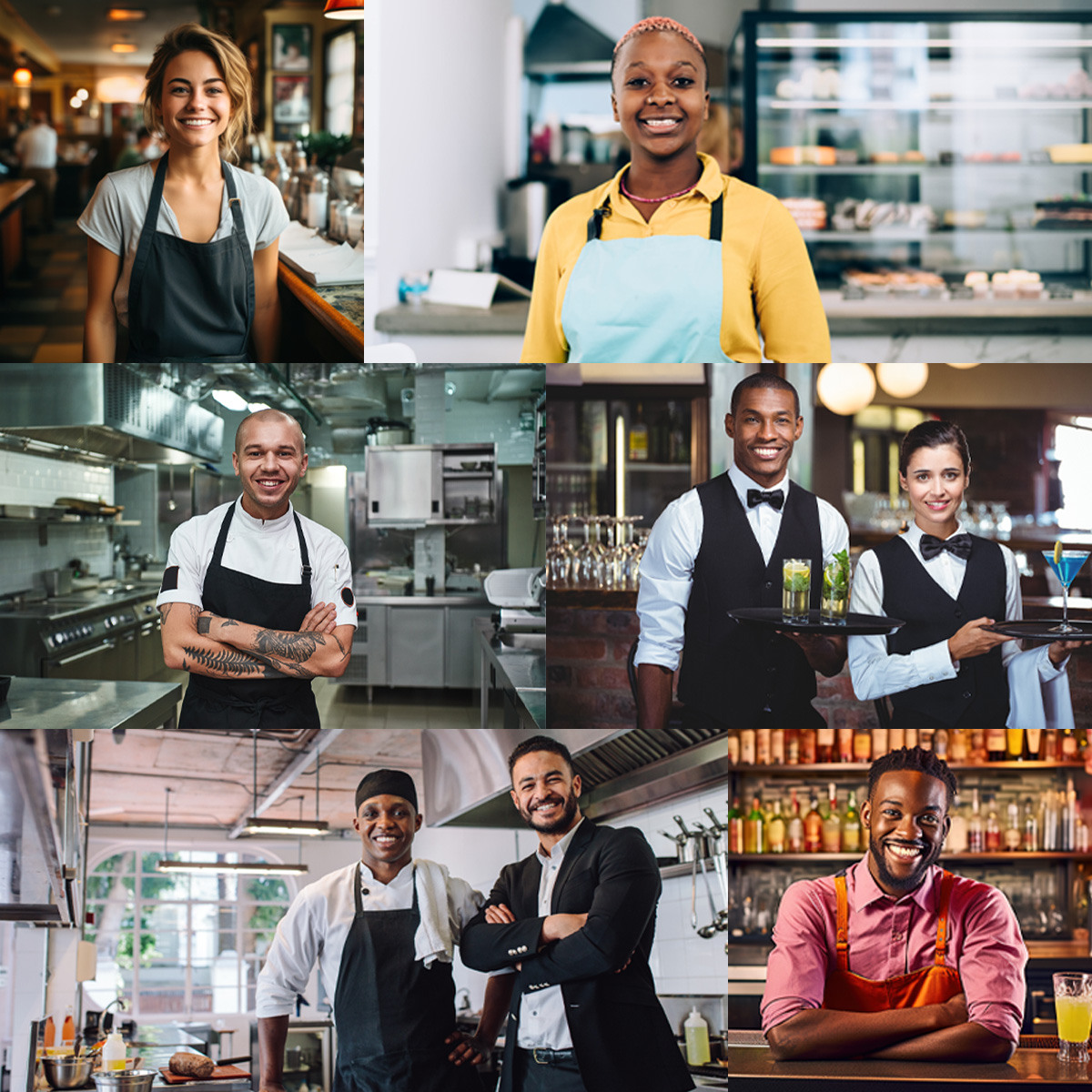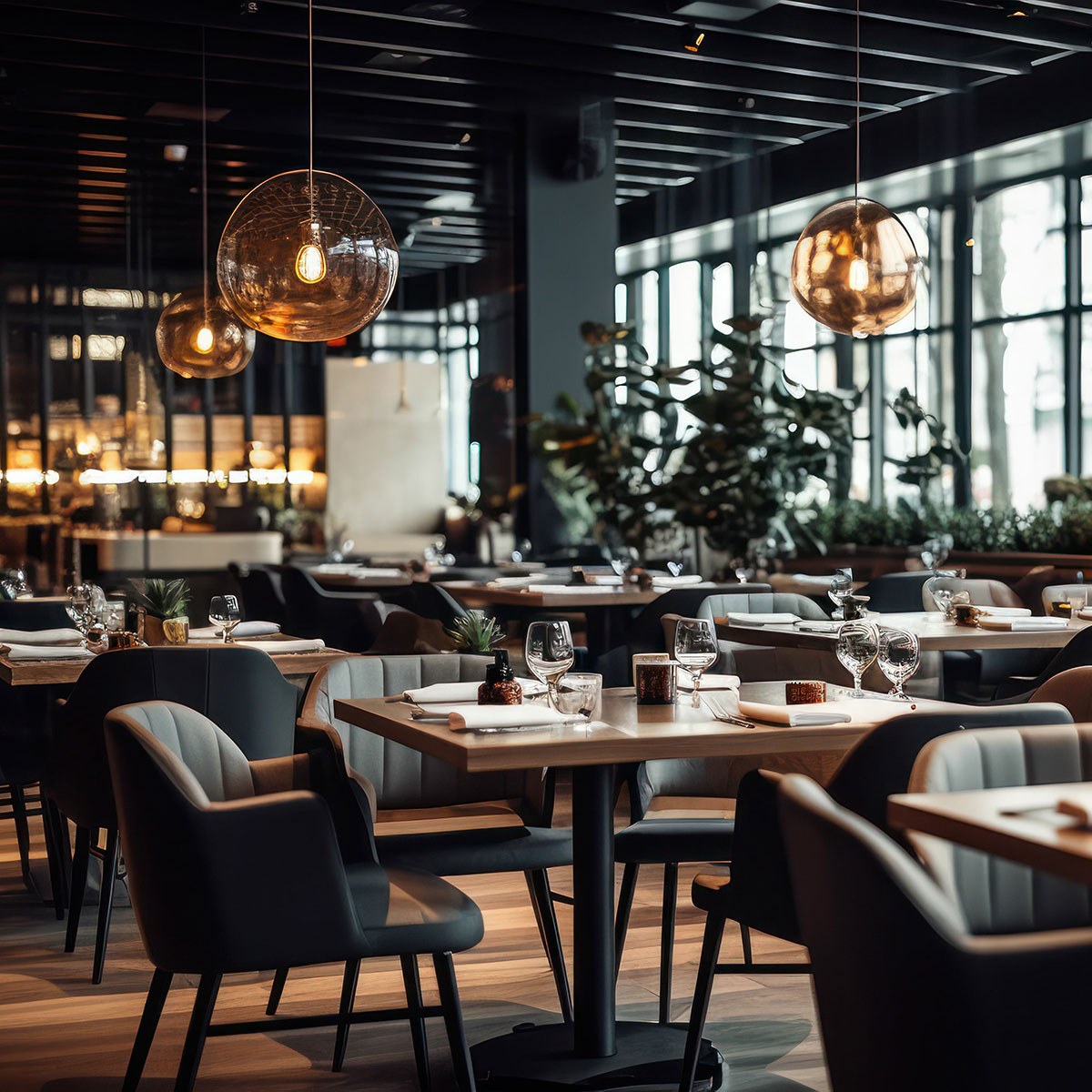
1 Aug 2024

It’s been a bumpy ride for hospitality groups in recent years; the pandemic, staff shortages, rising prices, and a cost-of-living crisis hit us all at once. And it was tough.
But they responded, adapted, and shifted and as they prepare for the future, we’d like to hope that things will only get better.
It goes without saying, to stay competitive in the future, businesses working in the hospitality sector need to be offering the best experiences, as well as reducing any insufficiencies in operations.
So what should we keep an eye on as we approach the final quarter of 2023?
Here are 5 considerations for 2024:
1. Customer expectations
Expectations have changed drastically since the pandemic.
Customers have adapted to the changes that were introduced over the last few years since they promoted a more streamlined service. In fact, 57% of UK customers expect businesses to maintain that level of flexibility.
Guest expectations vary greatly. One lens of understanding this is through generational trends.
Gen-X (1965-1980) are at the stage in their life where they want control. They relish an easy booking system, and like to have a strong idea of what is on offer before they visit.
Millennials (1981-1996) are the generation seeking work life balance. They want adaptable spaces that offer them the options of work and play.
Gen-Z (1997-2012) wants an experience, and more than any other generation before them value sustainability, equality and equitable practices.
2. Changing Market
Cost of Living Crisis
The cost of living crisis saw a downturn in customer spending when it comes to eating out. For 72% of consumers continuing to enjoy eating out, price is the leading factor in restaurant choice. 89% intended to find ways to save money through discount vouchers, skipping a course, or choosing a cheaper meal.
It is not all doom and gloom though. Whilst pricing strategies and food offers will be key to getting customers in the door, research has shown that ordering through an app can increase the average order value by 40%!
Dark Kitchens
The demand for dark kitchens and purpose built delivery kitchens continues to grow in line with an increasing demand for restaurant food delivered to the home.
Dark kitchens can fulfil this expectation without the overheads of a restaurant. The market looks set to double in size by 2027, with Deliveroo and Food Stars being the largest provider of rentable dark kitchen spaces.
Can hospitality groups capitalise on the dark kitchen concept? Could it become part of their business model and help increase sales.
Hybrid Spaces
ONS has reported that 44% of people report to work at home, or hybrid working. Hospitality groups are adapting to this by offering hybrid ‘bleisure’ spaces, where people can work. In simple terms this could simply be plug sockets, and good Wi-Fi and coffee.
Flexible working isn’t just a trend, and the hospitality industry needs to meet the demands of the hybrid customer.
3. Adapting to Changing Consumer Behaviour
Unified commerce
Consumers want a seamless experience and expect technology to play a part in this. Unified commerce is the future of tech for hospitality groups. It’s when payments from all channels (online, through apps, and in person) feed into the same system. This enables hospitality groups to make targeted data driven decisions for their businesses, and offers their customers a seamless guest experience.
Technology
Technology plays a big part in consumers' lives at home, and for a seamless guest experience they expect this to continue in their leisure. Hotels are already starting to use voice control in rooms for guests to obtain key information such as check out times, and request services, so it’s likely we’ll see this technology appear in the restaurant industry too.
Virtual Reality (VR) can be used to allow customers a tour of facilities before they book. It can also be a labour and cost reducing tool by showing how venues can be adapted to suit these needs. AI has a place and can be used as a customer services tool in a 24/7 industry, or to make bookings more efficient.
Wellness
Wellness is a vast and growing industry and is fast becoming part of culture with consumers recognising the importance of taking care of our minds and bodies. Hospitality groups are already adapting to this customer behaviour by offering wellness menus with vegan options and non-alcoholic beverages.
With more wellness considerations factored in, it’s likely that hospitality groups will begin to attract more customers.
4. Essential Strategies
Sustainability
87% of millennials believe the success of a business should be measured by its impact on the world. Sustainability should be a core value of hospitality brands, and communicating sustainable strategies to consumers is key.
Hospitality groups should be looking at alternatives to single use plastics, water monitoring, and economies of scale. Menus should include local offerings and sustainably sourced food.
Authentic user generated content
Word of mouth has always been a powerful advertising tool. The influencer marketing market is now worth $13.8 billion. The micro influencer is on the rise and the nano influencer has now hit the scene. Individuals with a following between 1K and 5K are getting twice as much relative engagement as those influencers with very large following.
With the younger generations looking to social media platforms, there is much power with the micro influencer. It also allows us to connect with profitable consumers - those with disposable income and a device in their hands, ready to share content with their wider networks.
Real Time Marketing
With technology delivering us more and more information about consumers, and the ability to use social platforms to reach a large number of people quickly, real time marketing is on the rise.
Whether it’s reacting to a heatwave by offering 2 for 1 on cold beverages or tailoring your marketing content to a current sporting event, real time marketing is an effective tool to engage your customers.
60% of business leaders have seen an increase in customer retention with real time data analytics, and the information is crucial to bettering the customer experience.
5. Future Growth
One of the pathways to future growth for hospitality groups lies in using the technology available to gain customer insight and improve the guest experience.
Customers are looking for unique and personalised experiences. Marketing strategies such as content marketing, can help tell your brand story and focus on how you can make your customer feel.
Future growth also relies on customer loyalty, perhaps through methods such as loyalty schemes and subscription offers. But ultimately, being aware of customers expectations.
Hospitality has always involved going the extra mile for the customer, but perhaps now we need to go the extra two miles, and maybe in a slightly different direction.
----
At Classeq, we are passionate about the growth and success of the hospitality sector. That’s why we are committed to providing you with content that explores every juncture of the hospitality journey from the distribution of catering equipment right through to the patron’s plate.
If there is a topic you’d like us to explore further, do let us know. Otherwise, view our full content library here, or speak to a member of the team today . Whether it’s a new machine you need, or technical support, our team is ready to assist.
---
External sources
The next five years
Restaurant and bars report 2023
The guide to dark kitchens
Characteristics of homeworkers
9 key consumer behaviour trends
Forbes
You have questions or need help?
We'll call you or write to you!